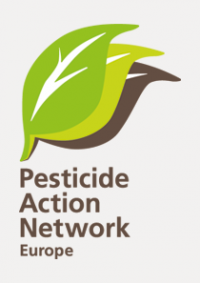This report shows how the industry wrote the rules for substitution of the most toxic pesticides. As a result none of them have been replaced and contamination of fruit has grown worse over the last 10 years.
The category of pesticides examined here, labelled by regulators as Candidates for Substitution, are linked to increased risk of cancer, birth deformities, heart disease and other crippling health conditions. Most are also very harmful to biodiversity to the environment. It is therefore easy to understand why legislators decided to phase them out as long ago as 2009 in favour of safer alternatives. This report reveals for the first time precisely how this law has failed on every single occasion, spanning at least 278 cases.
We will show that the cause of this regulatory failure is twofold. Firstly, this report reveals for the first time that the European Commission and member governments overturned the objective of the Regulation on the approval of Pesticides by adopting guidelines that contradict it. These guidelines were written by an obscure external body, the European and Mediterranean Plant Protection Organisation or EPPO, that follows none of the transparency requirements that bind officials and is deeply compromised by industry representatives. Unsurprisingly then, the guidelines direct regulators to approve the most harmful chemicals and dismiss safer alternatives by insisting on principles and priorities that are missing from or contradict the law the text claims to reflect. So corporate interests, among them BASF, DuPont and Syngenta, wrote their own rules in their own interest and officials approved them. Officials are responsible for the second cause of failure; rejecting perfectly viable non-chemical pest controls that scientists say can cut pesticide use. They did that in opposition to the law and with the full knowledge of the European Commission that is supposed to uphold it.
This report is published on the 60th anniversary of Silent Spring, the seminal book that first alerted the world to the terrible price that pesticide poisons have on our environment and health. Its author, Rachel Carson, warned of a toxic relationship that formed in the US between officials and the agrochemical industry. We show just such a relationship in Europe 60 years later. She also warned of the futility of using ever more chemicals, writing that a war against nature is, ultimately, a wrongheaded war against ourselves. This report notes that all these years later, diligent scientists in the footsteps of Carson are still warning that the ever greater use of chemicals is almost certain to fail because it makes worse the very problem it is designed to solve. The era of pesticides may well be coming to an end, they say. But before it does, we need to decide if we want to live with this rising tide of chemical pollution that industry is producing and officials are sanctioning.
Many non-industry experts now agree that the far wiser option is to switch to sustainable farming methods. This report notes a host of ways policymakers can correct course, not least by rewriting the standards that have led to this shameful regulatory failure
